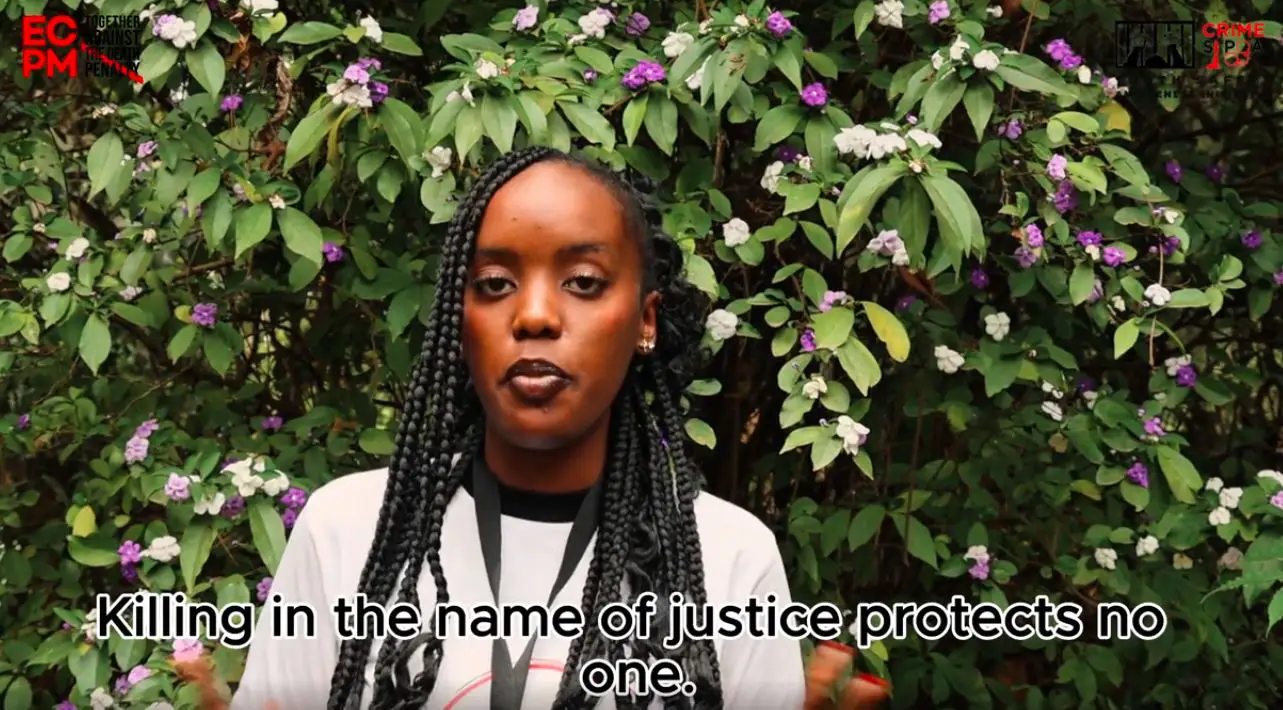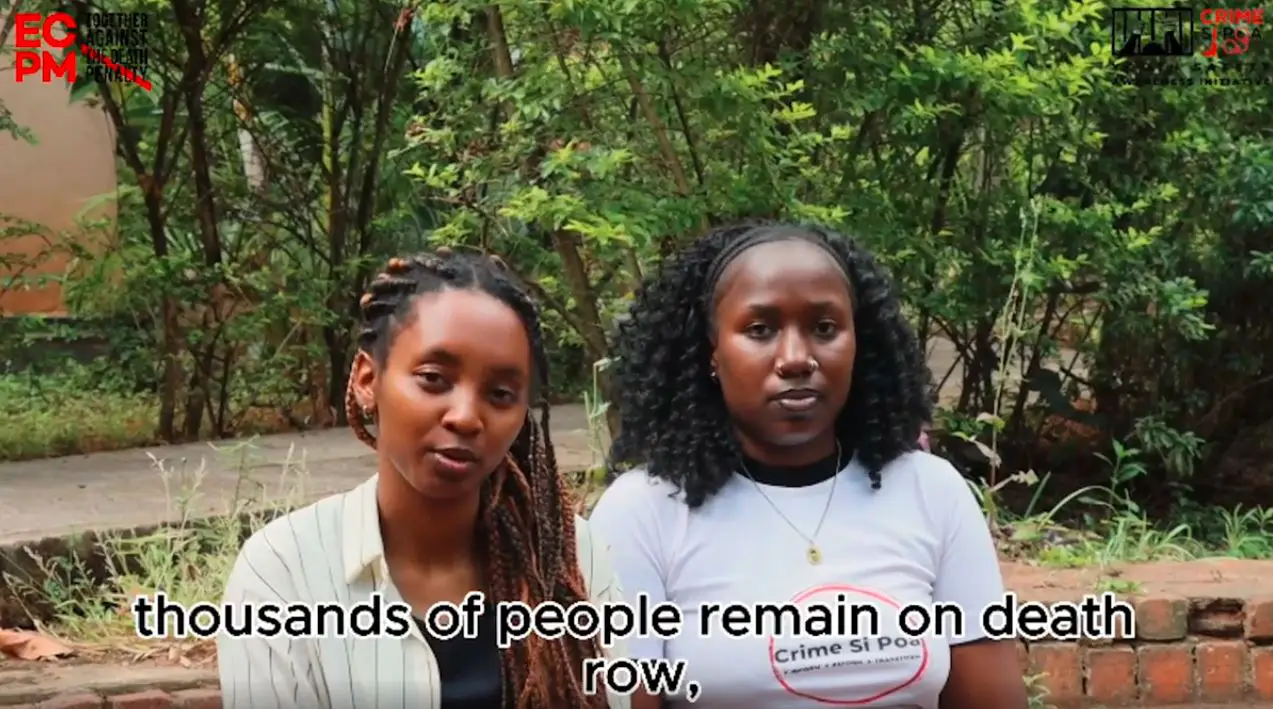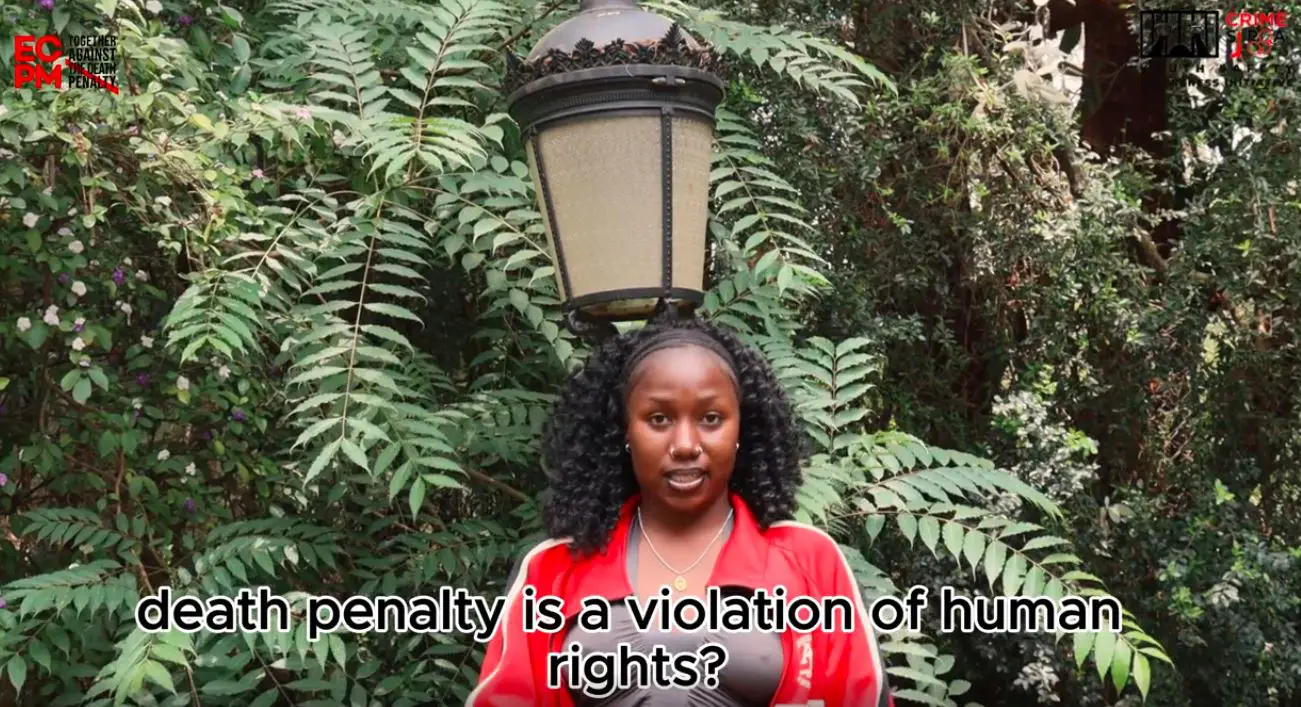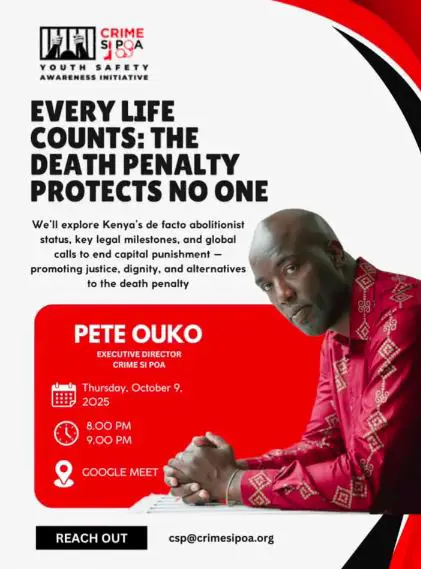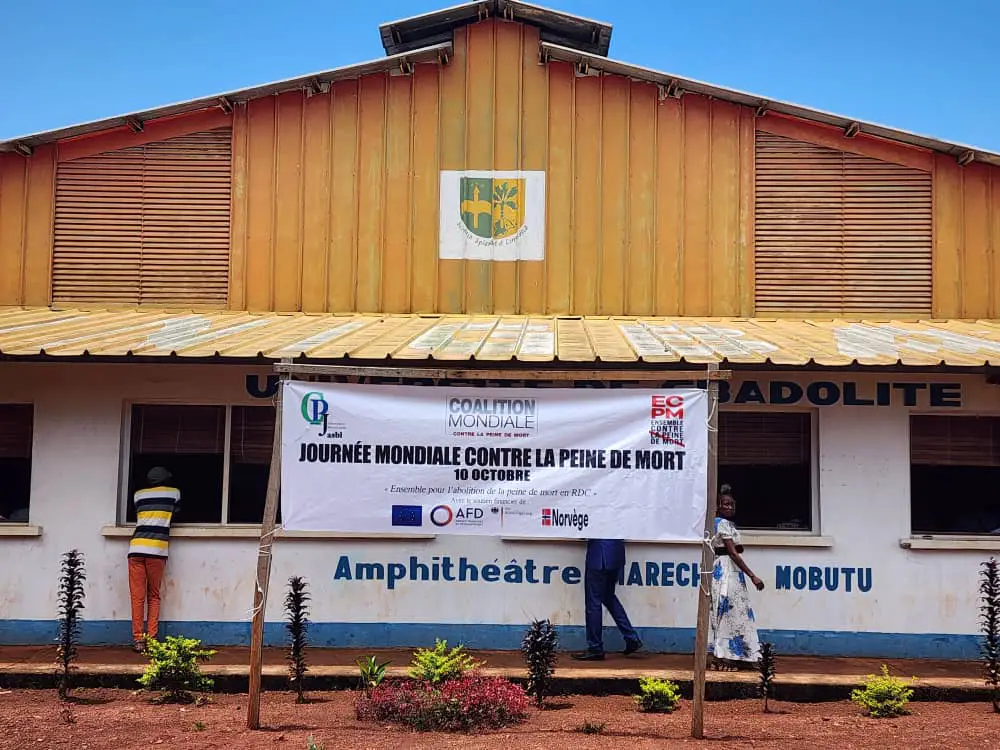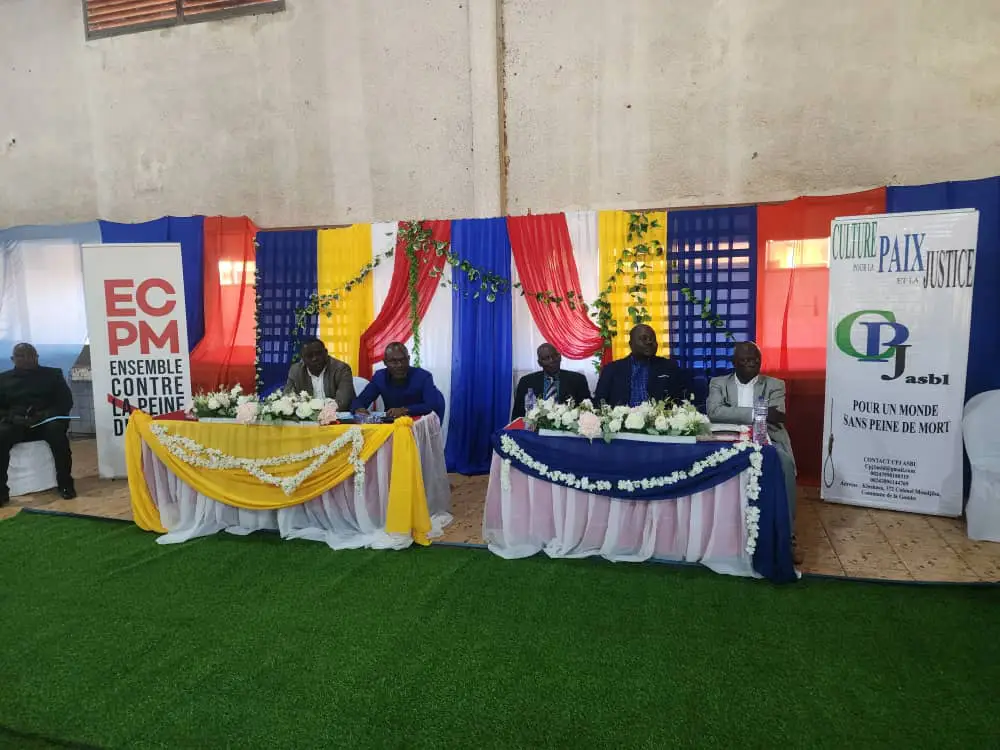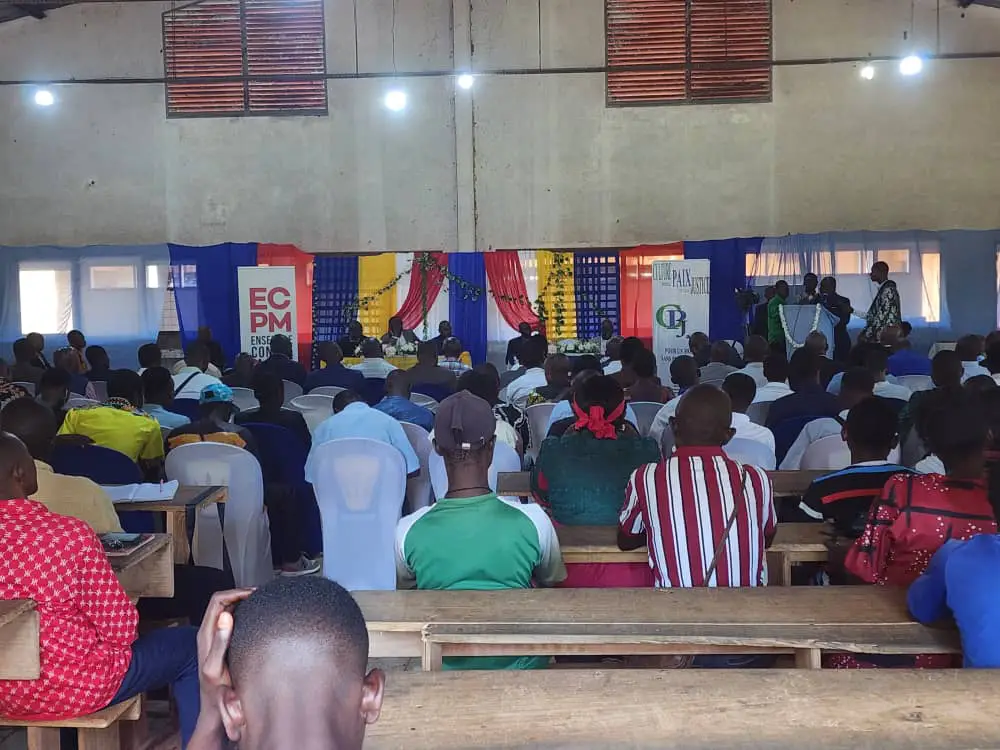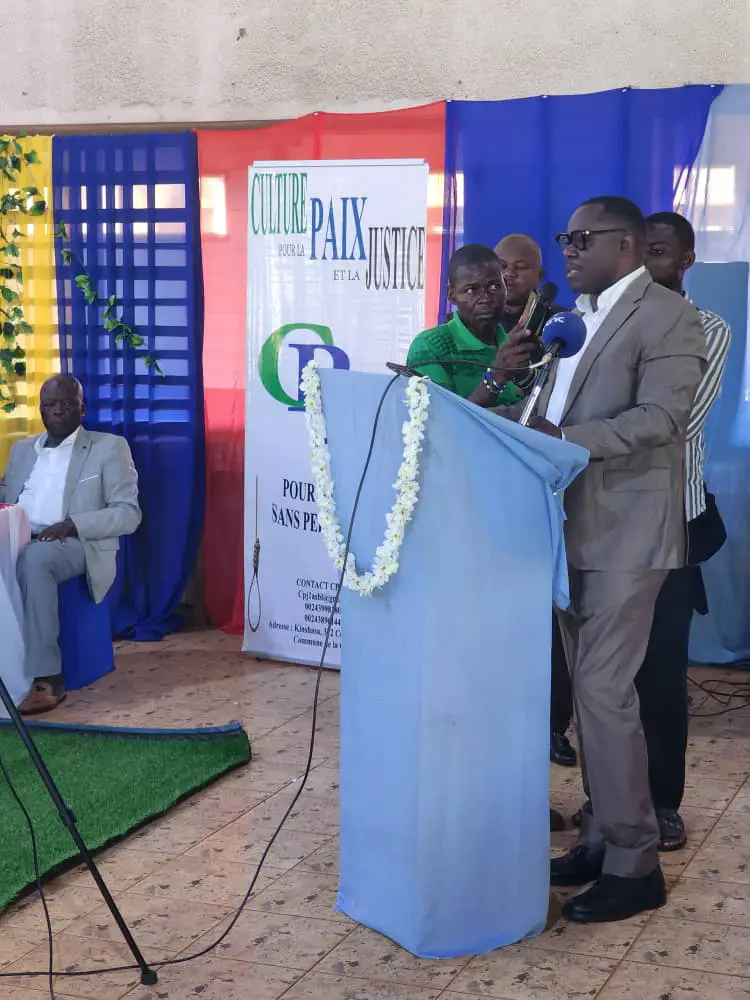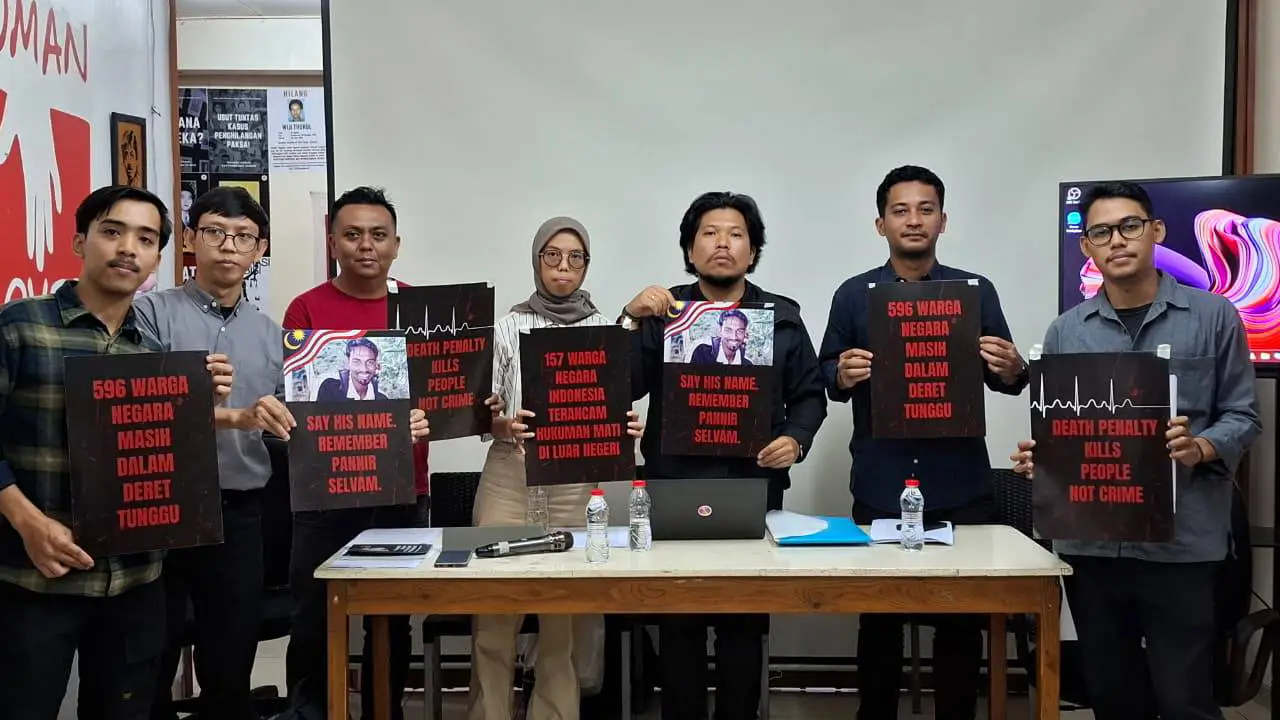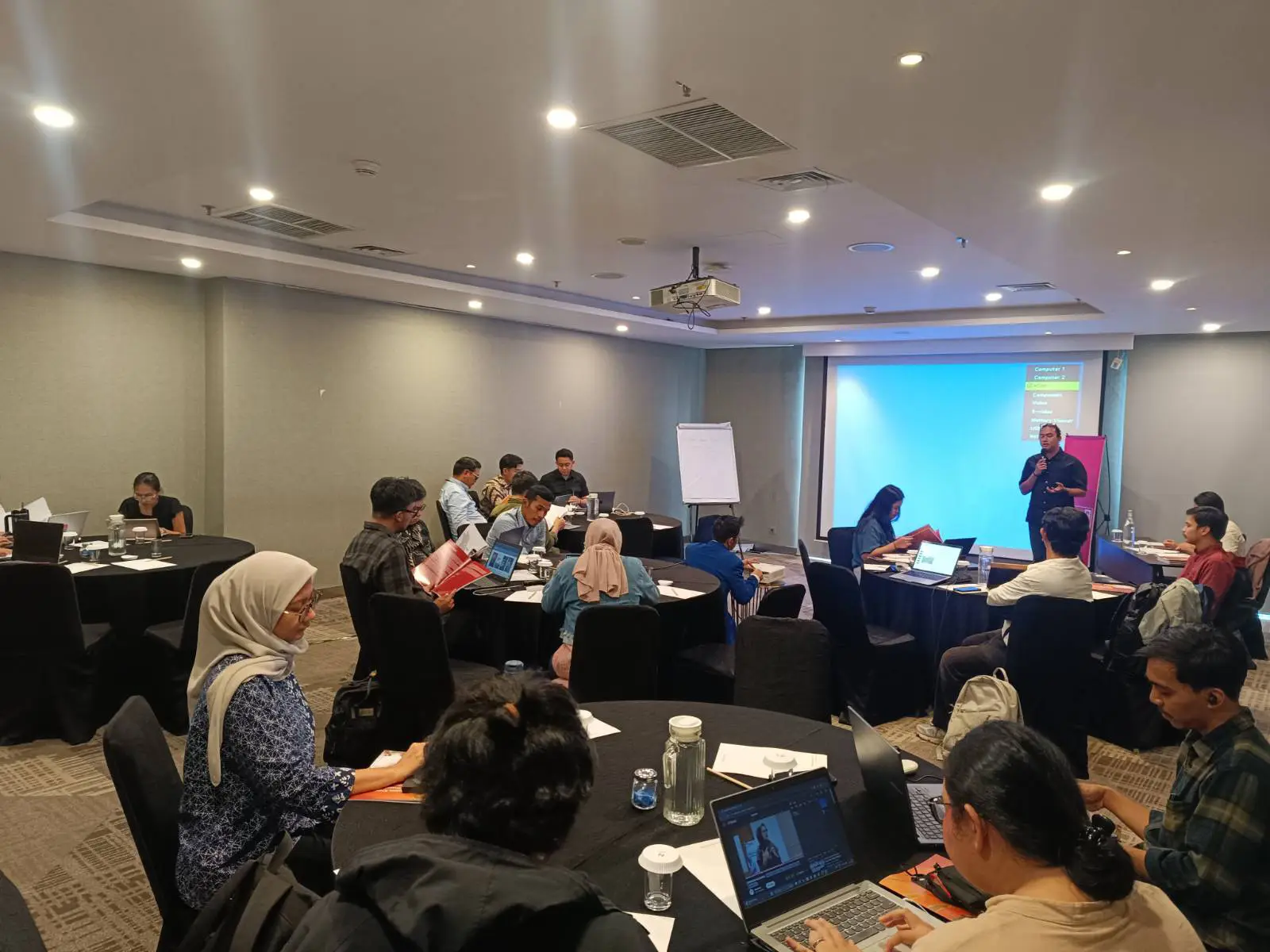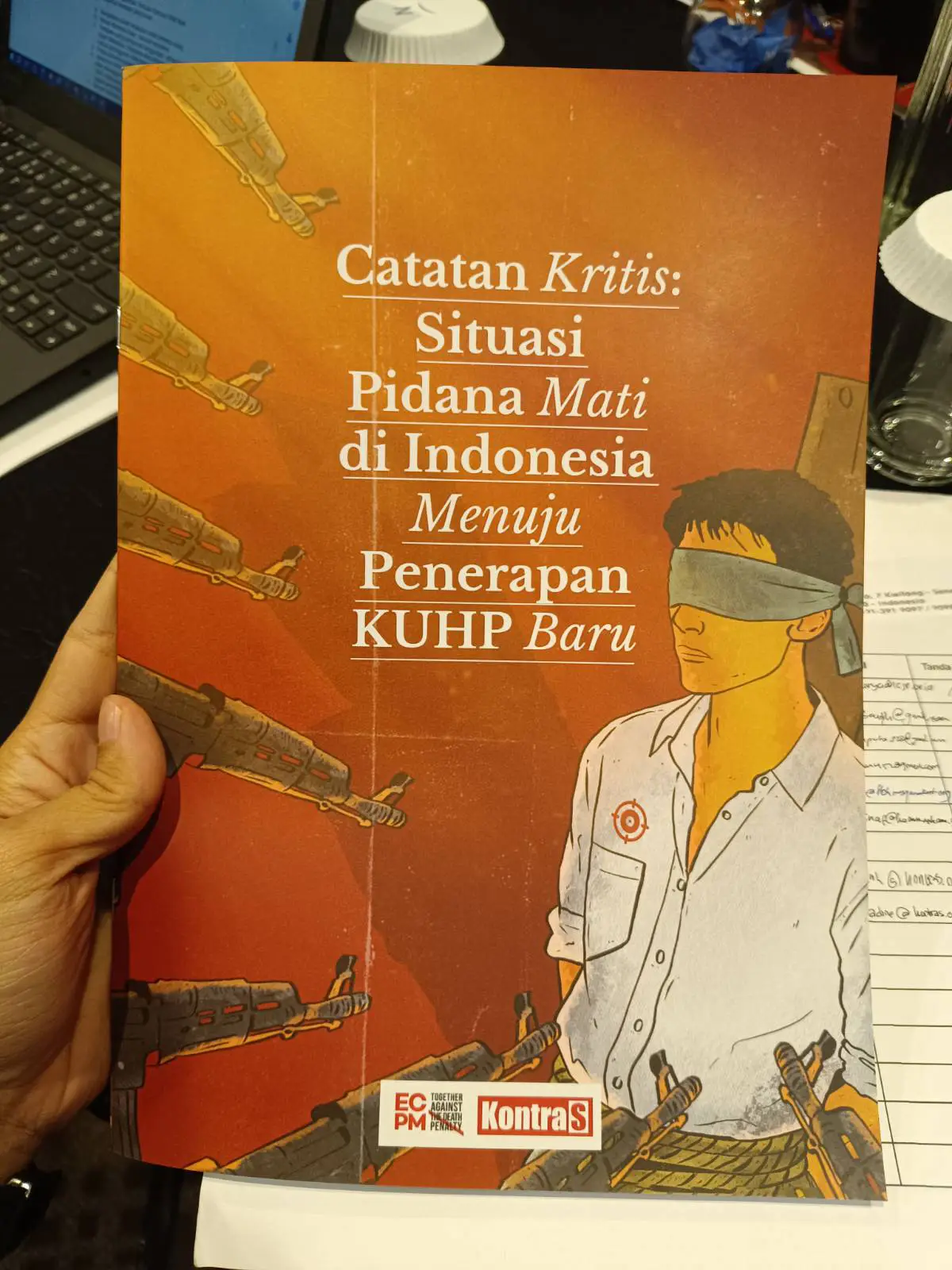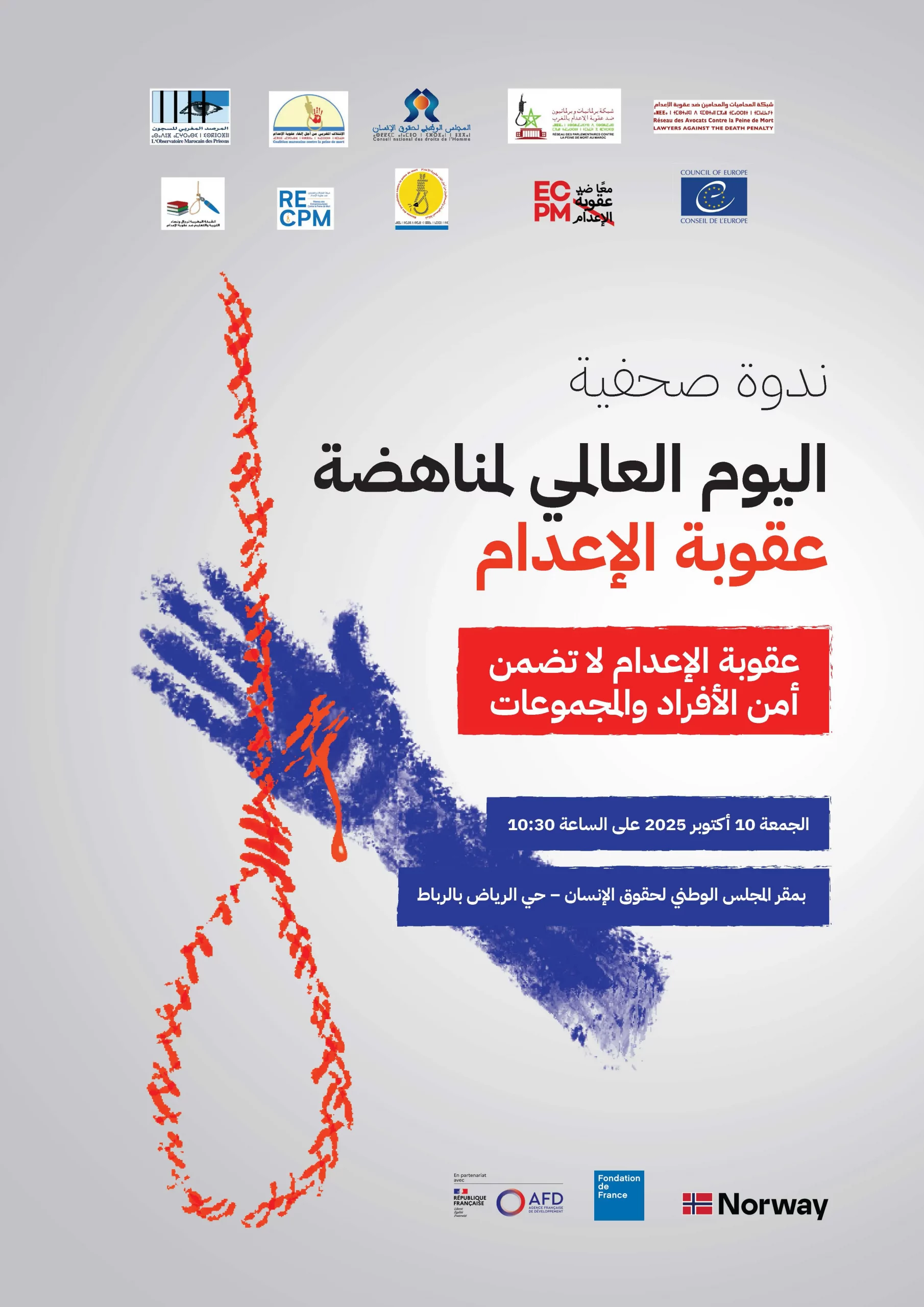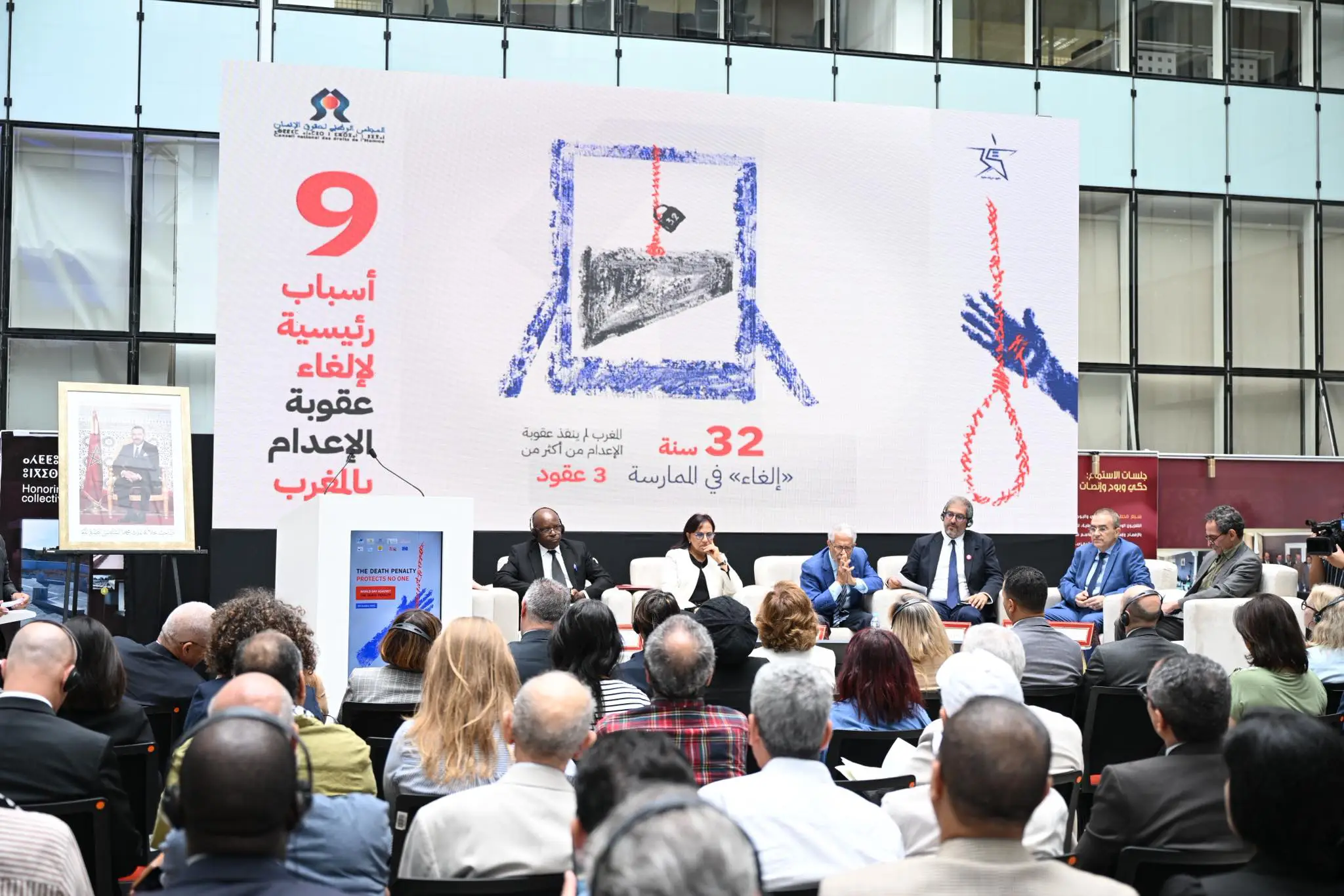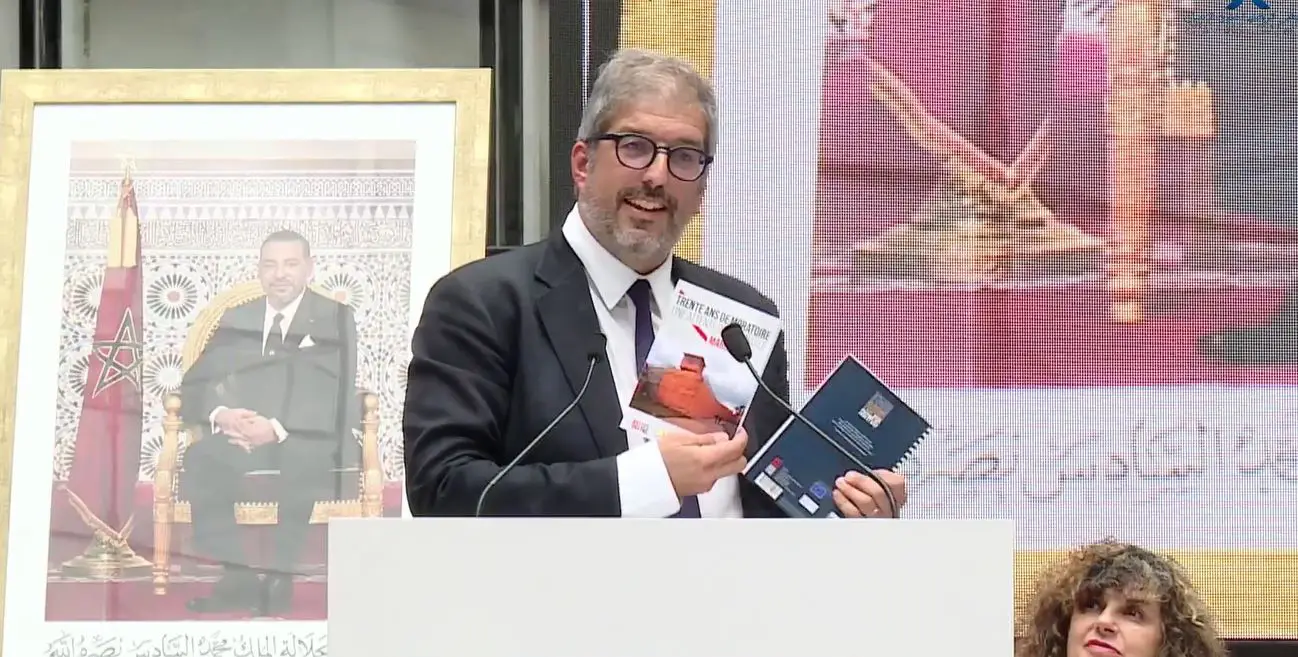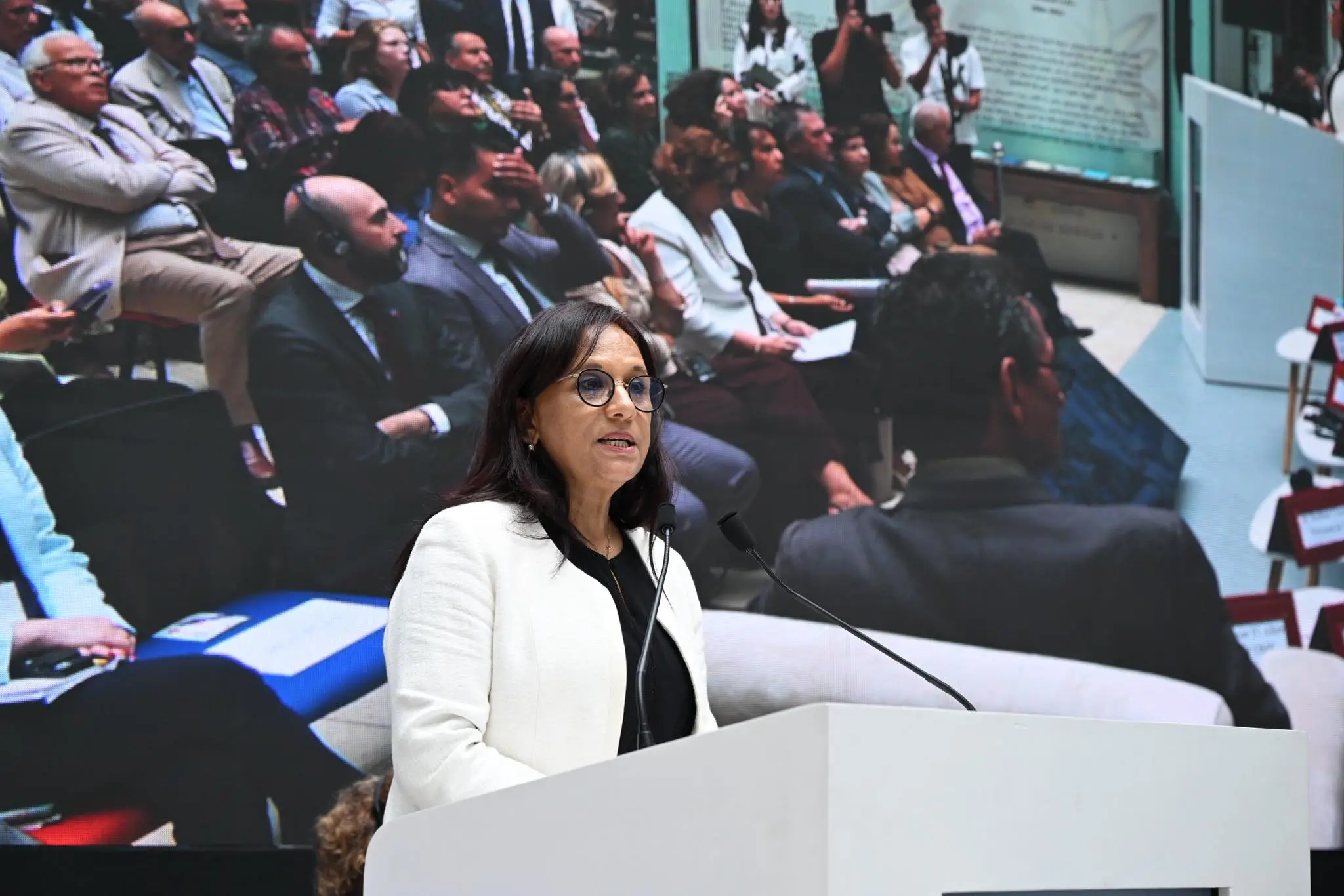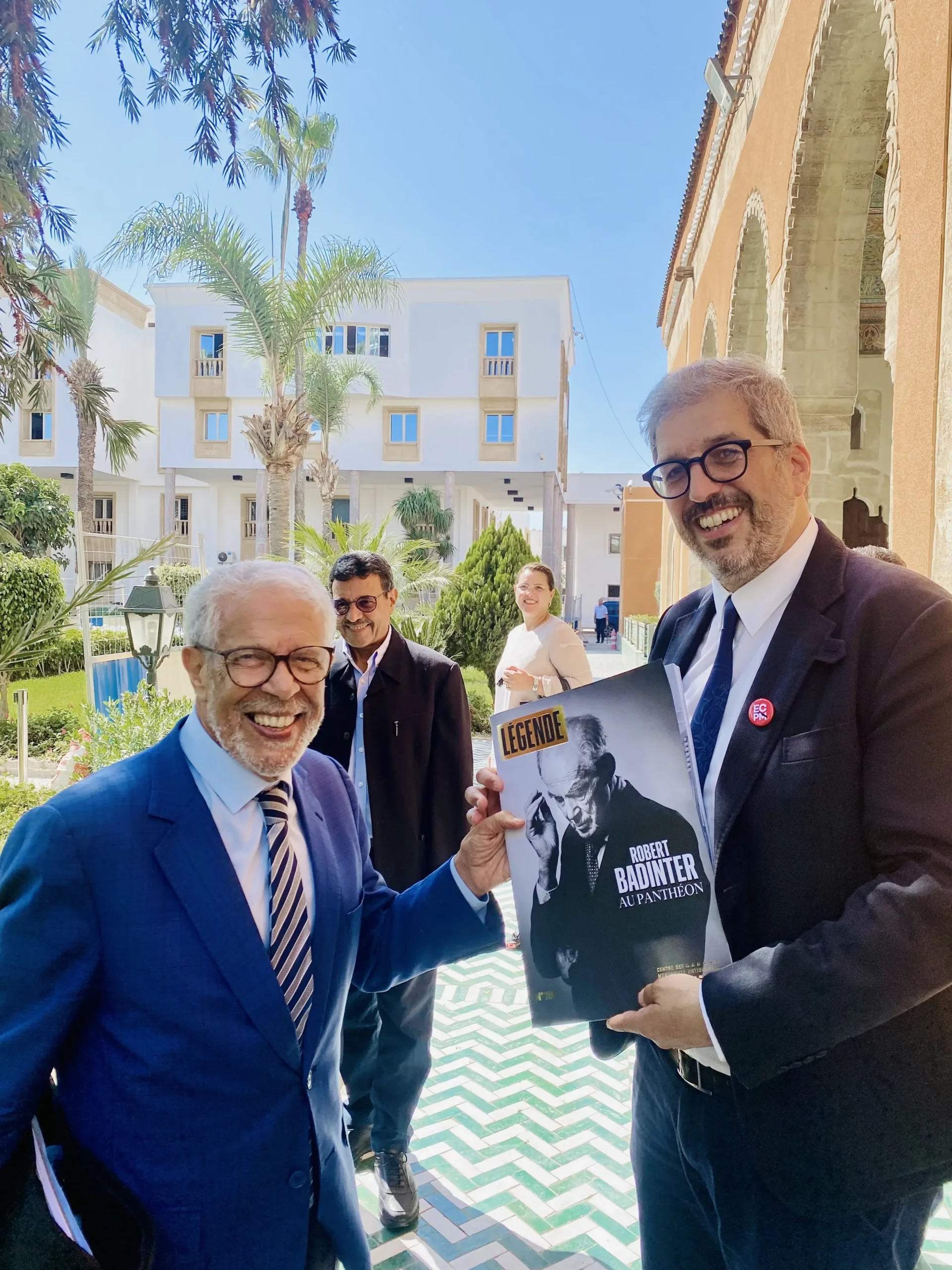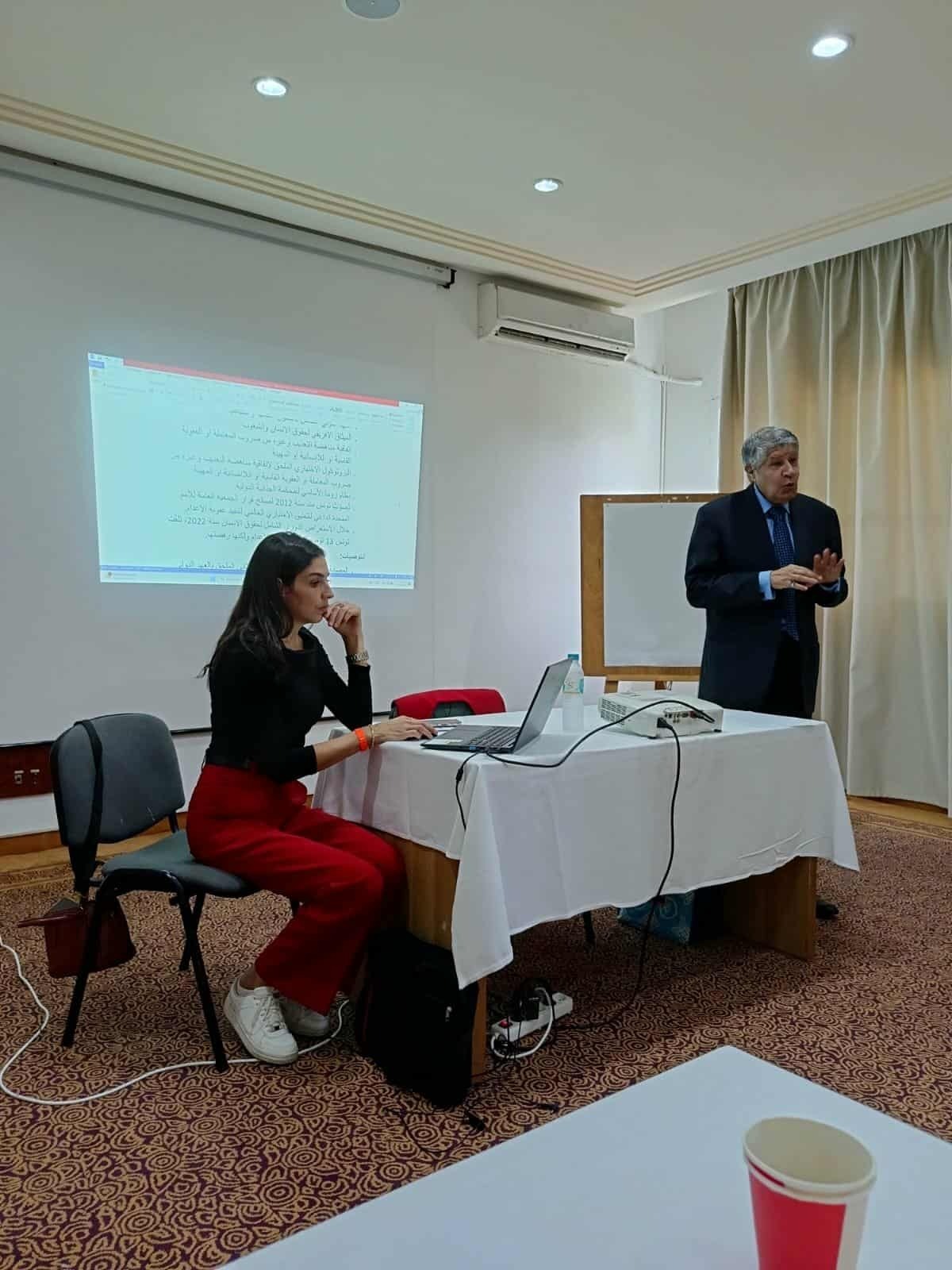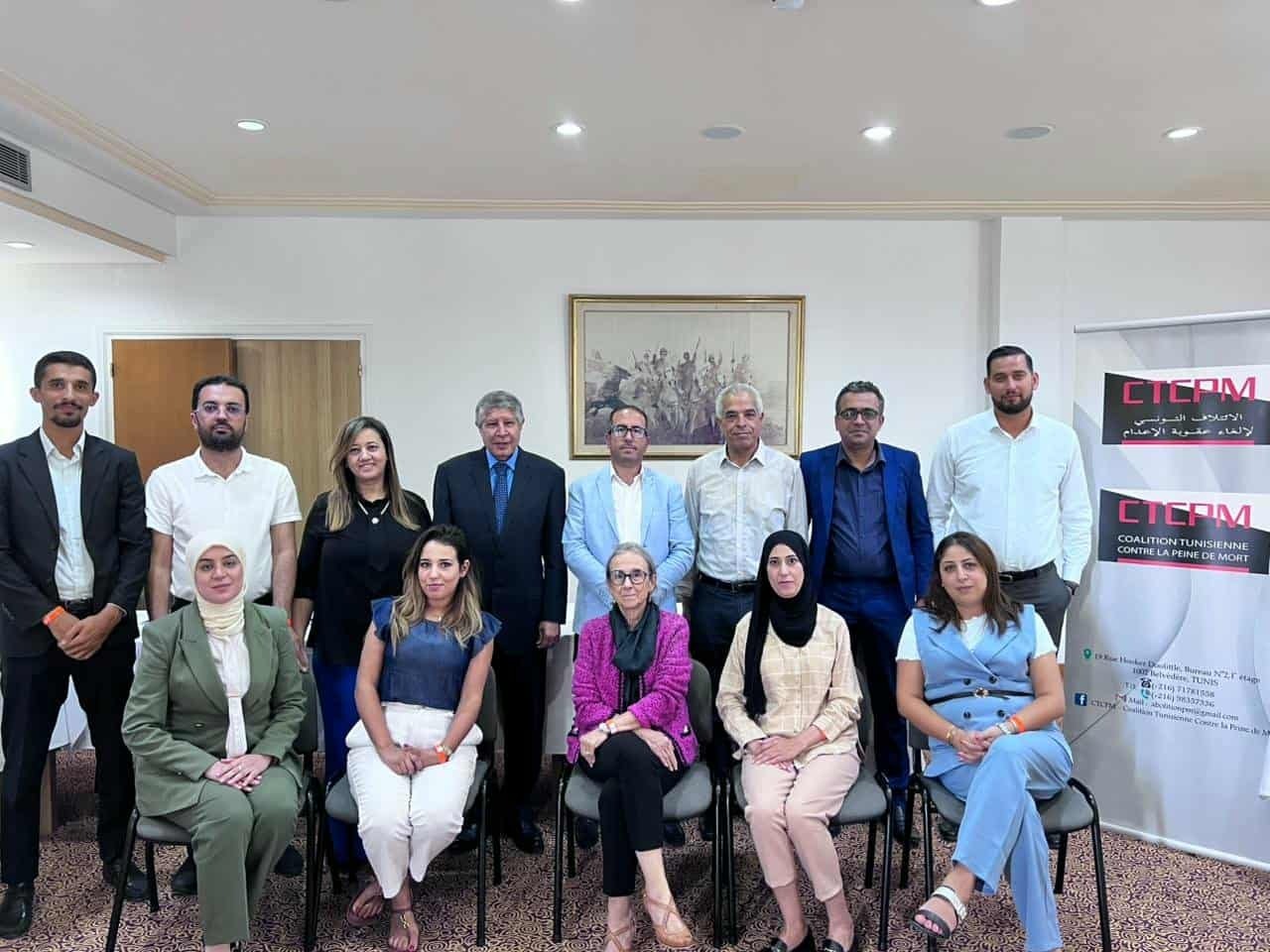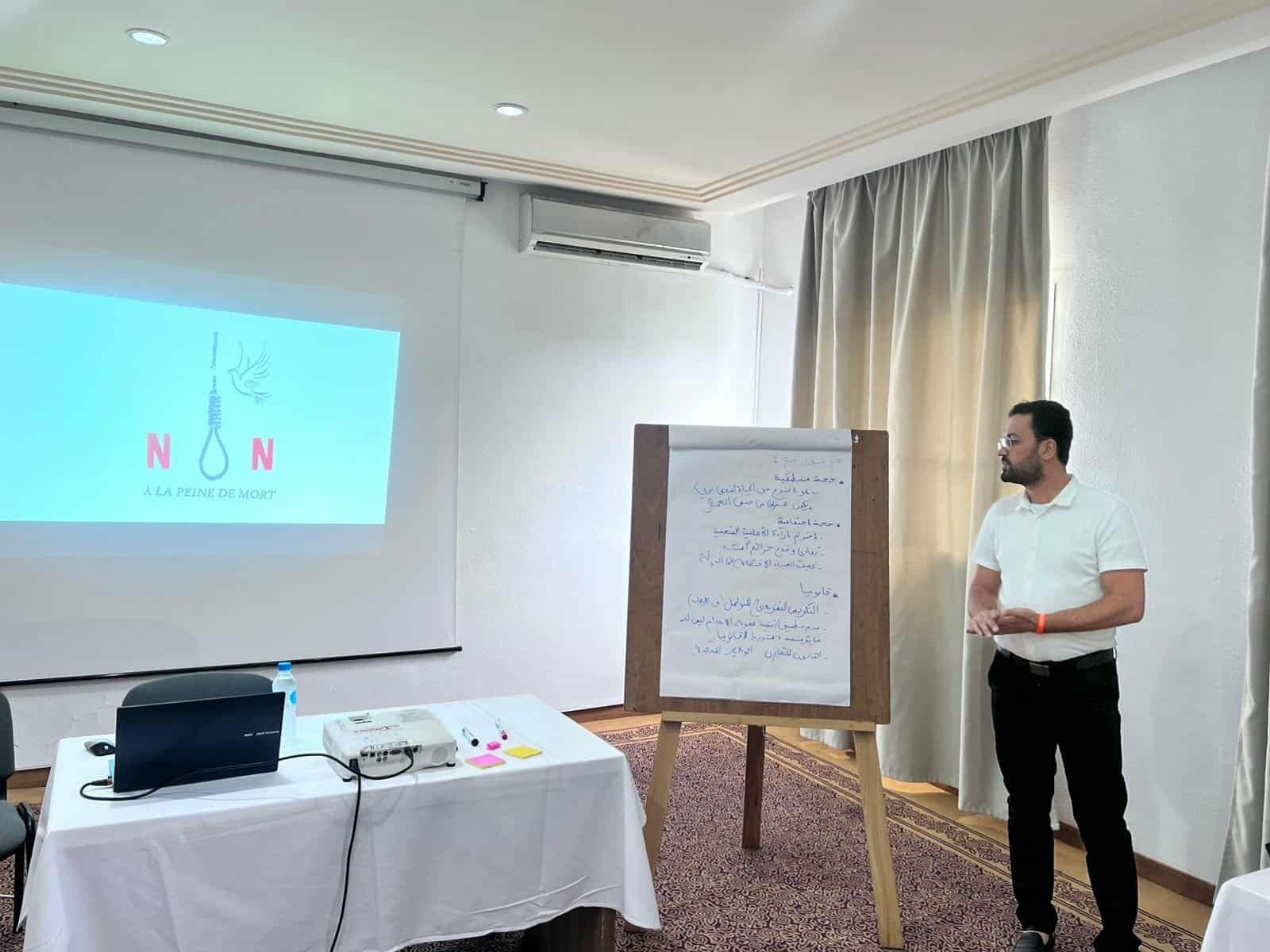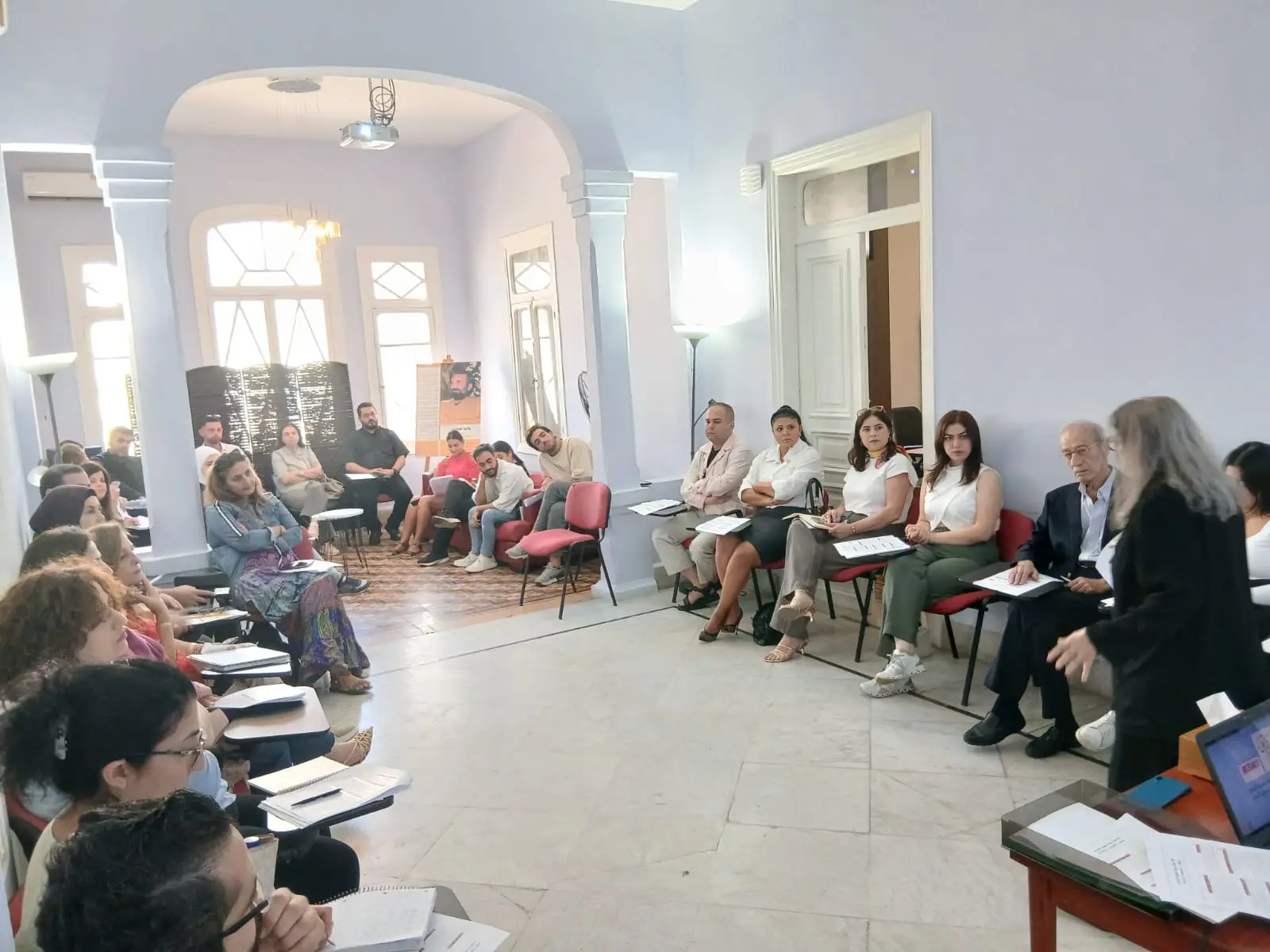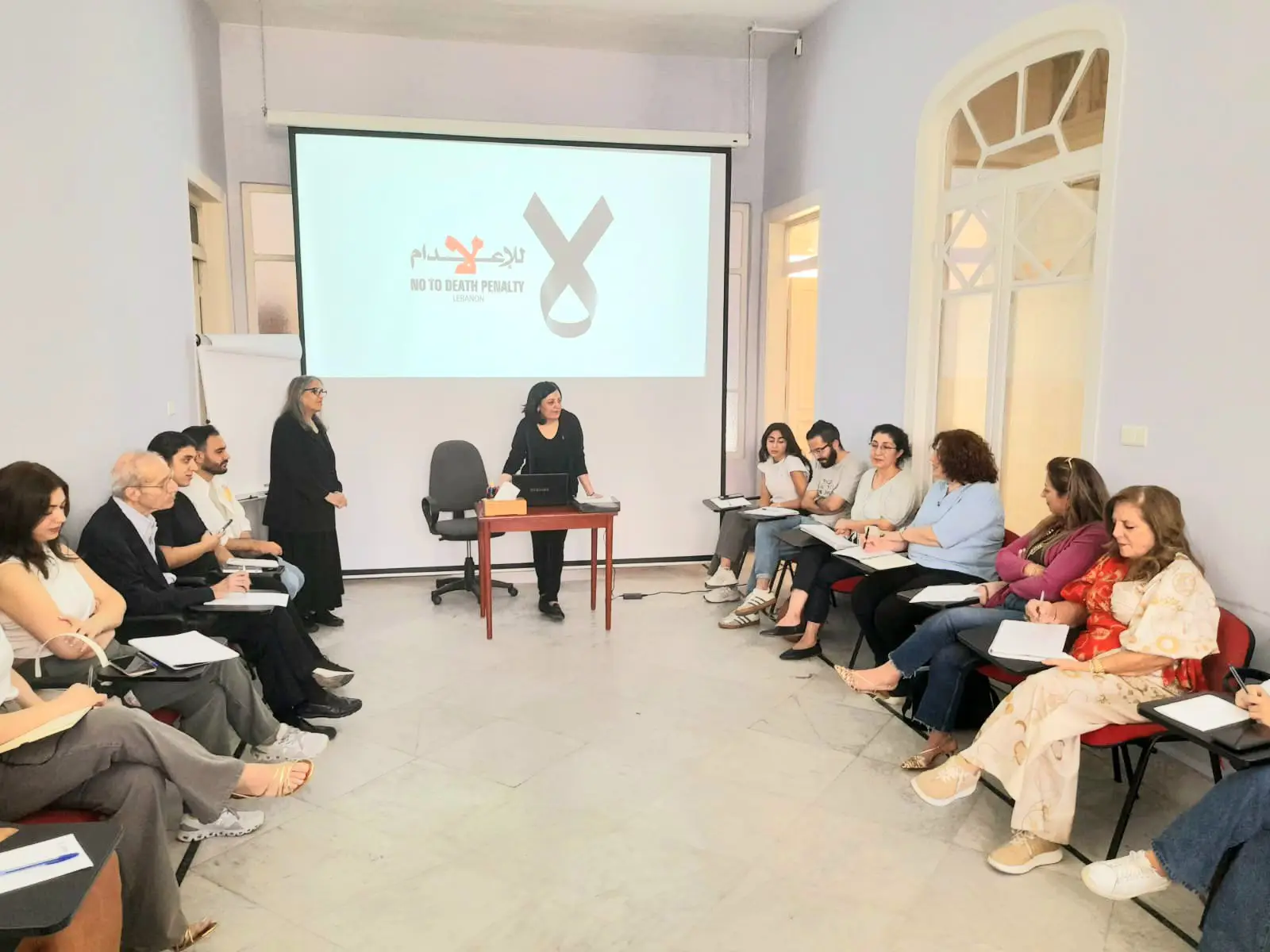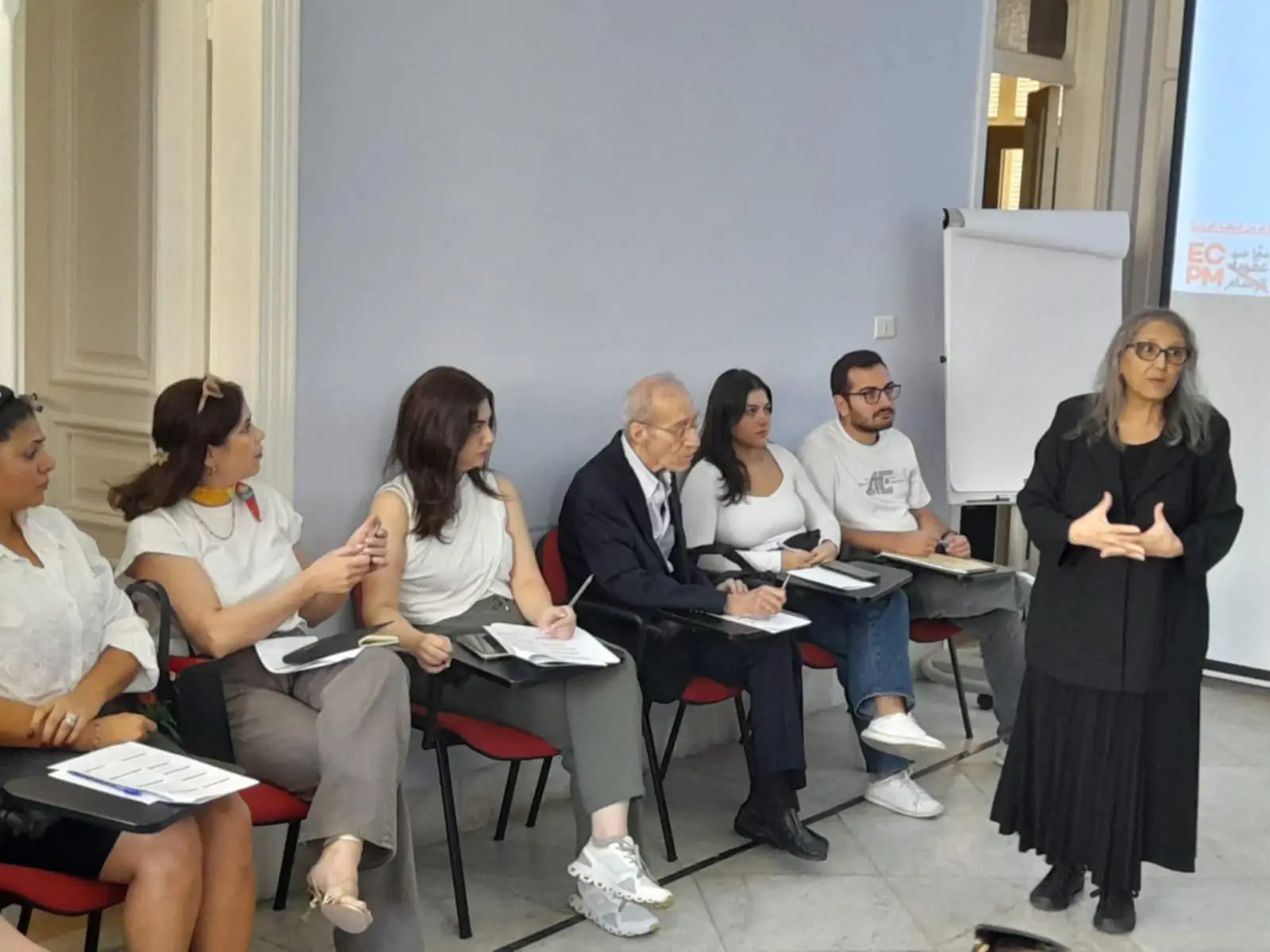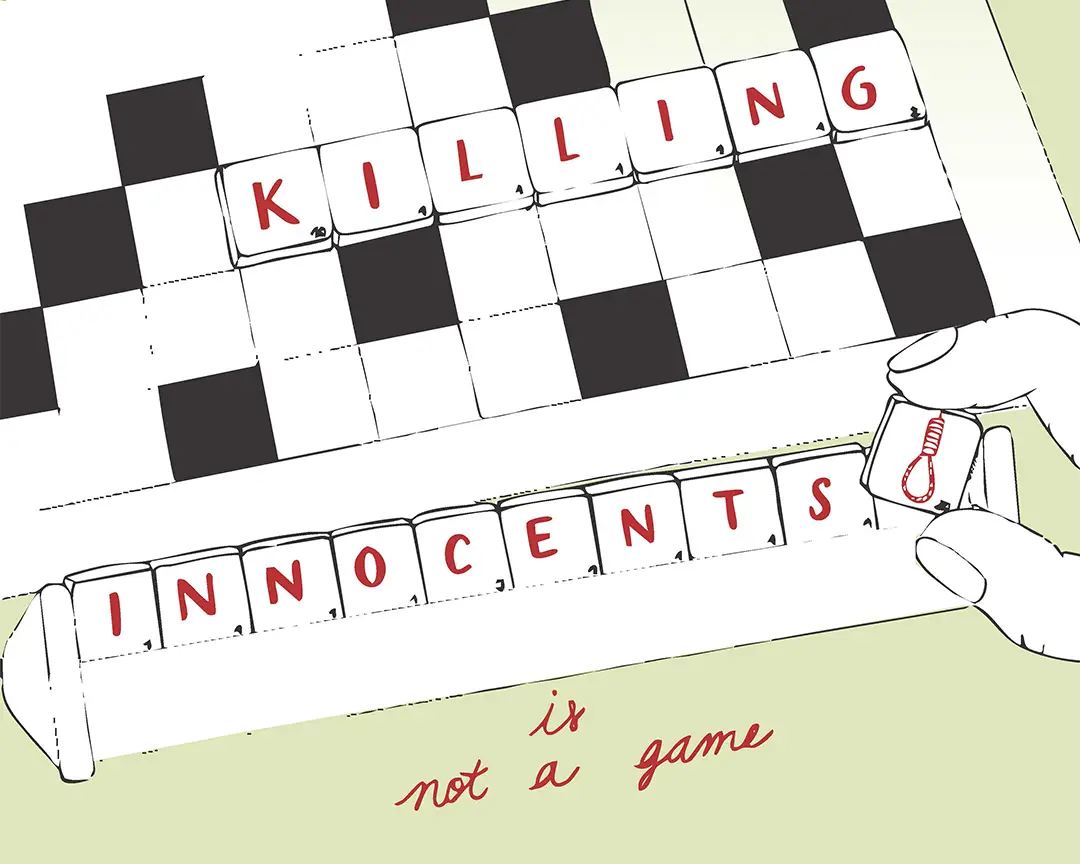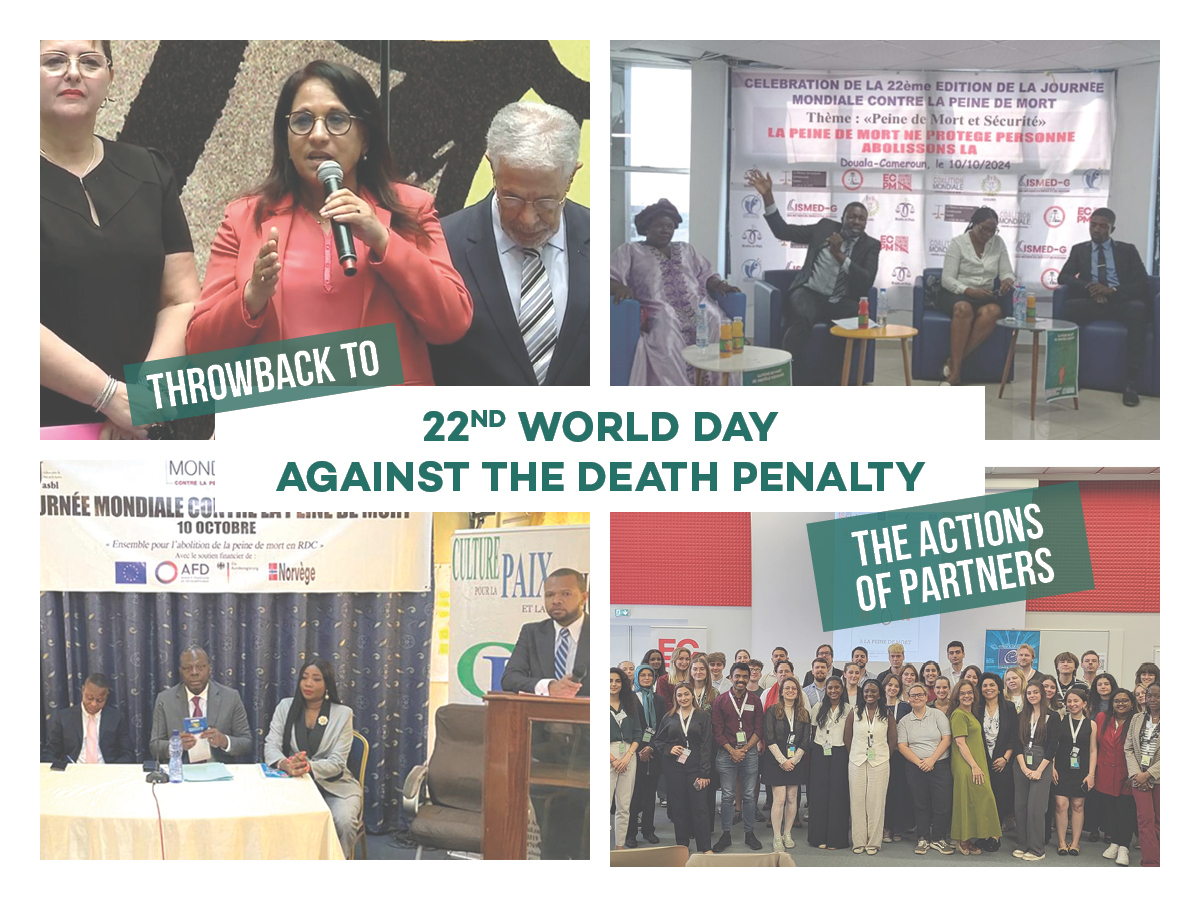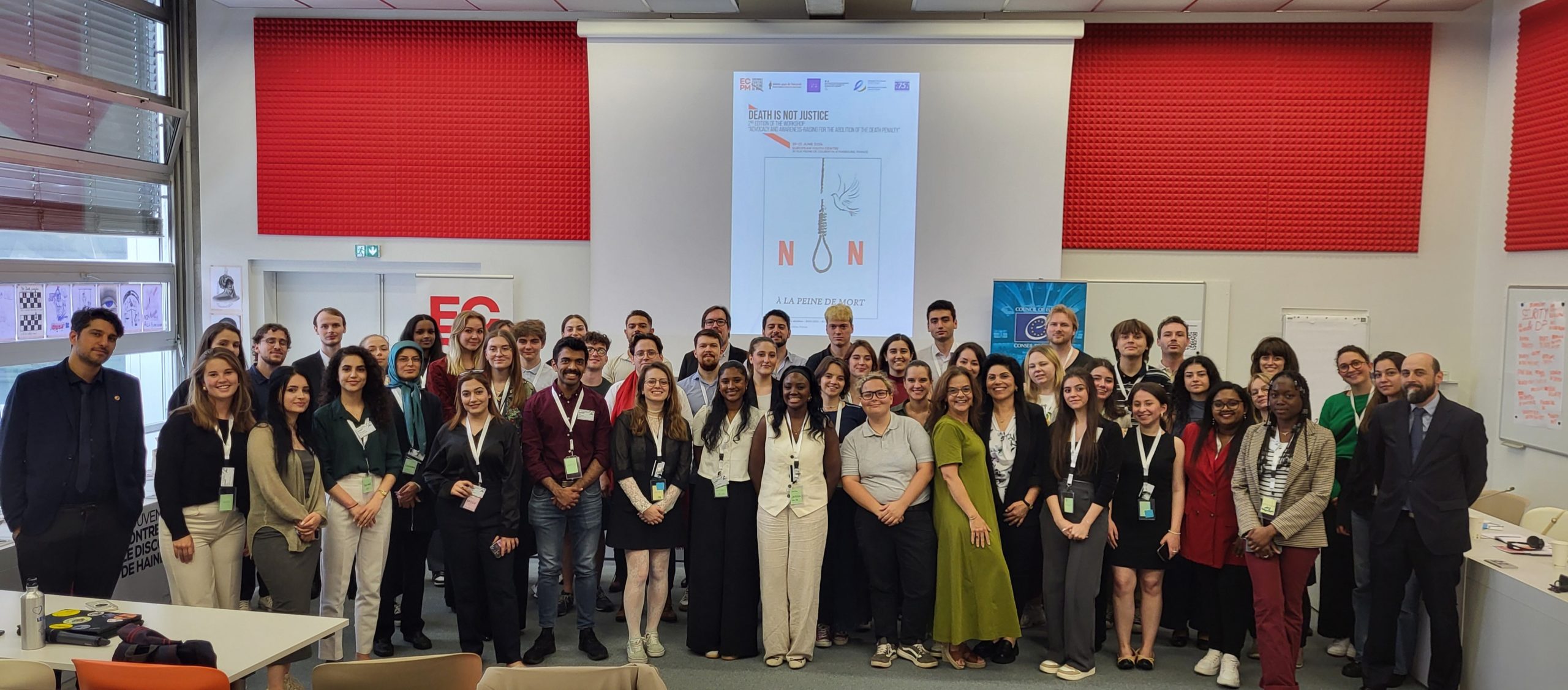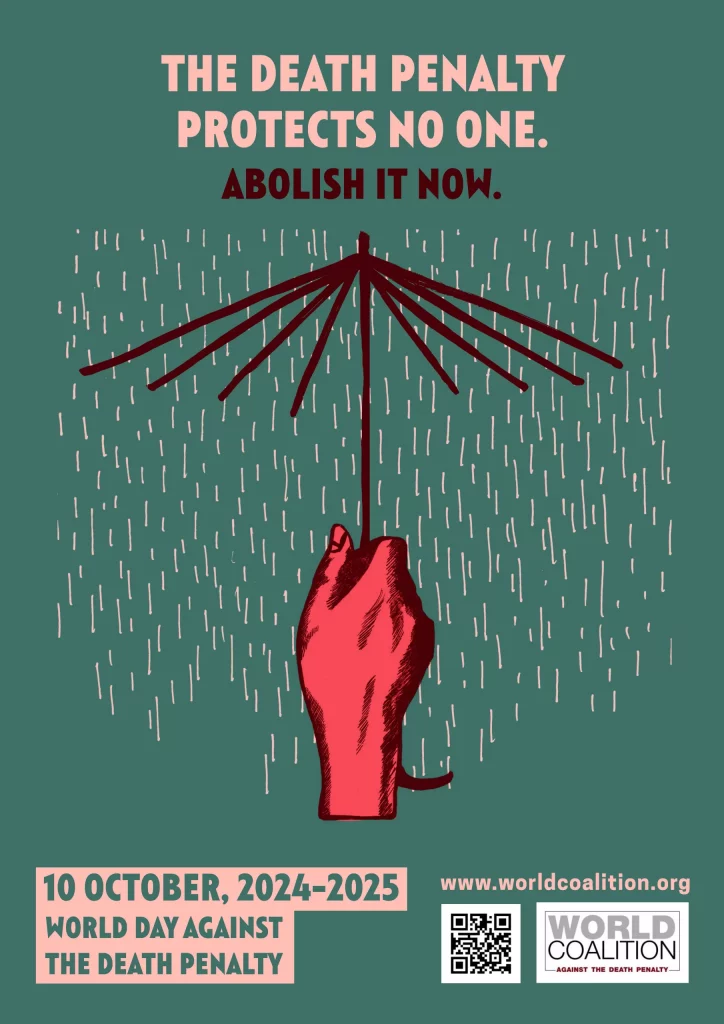
The World Day Against the Death Penalty : A Key Event for the Abolitionist Movement
A real event that brings together the abolitionist community, both online and on the ground, World Day Against the Death Penalty raises awareness of the issue of abolition among political circles and civil society every year. Each edition has a theme, and for the past two years, the focus has been on the lack of deterrent effect of the death penalty.
This year, the World Day was even more symbolic with the induction of Robert Badinter into the Pantheon the day before. The former Minister of Justice in France, he was responsible for passing the law abolishing the death penalty in the country on 9 October 1981.
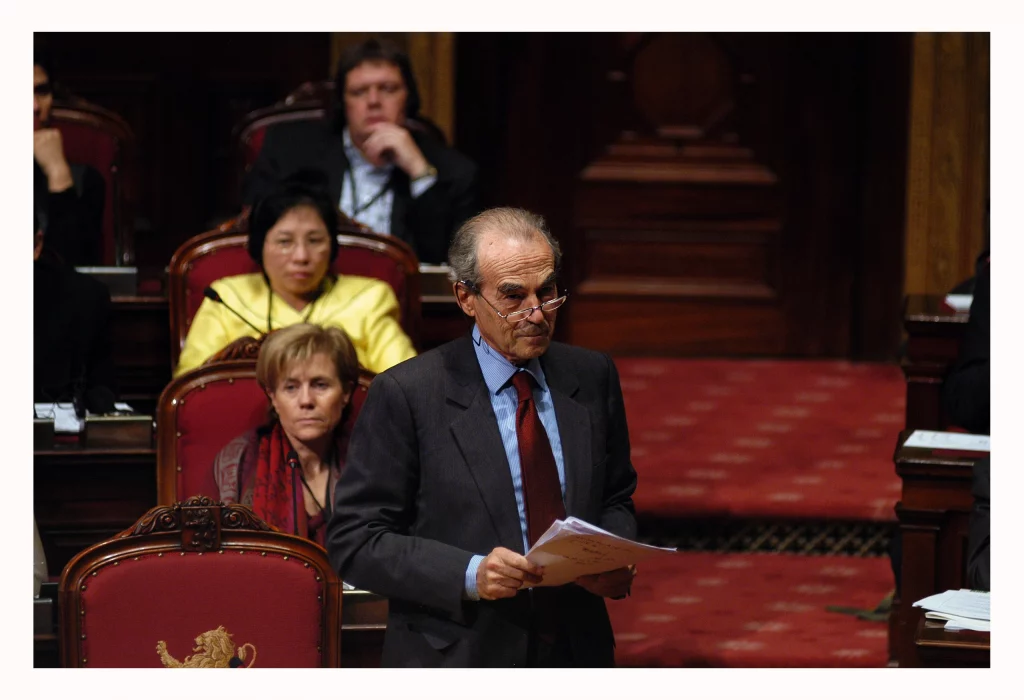
Sub-Saharan Africa
KENYA : RAISING AWARENESS AMONG THE YOUTH
The organisation Crime Si Poa played a major role in mobilising support for this World Day, particularly online. A series of videos was posted on social media between 1 and 10 October, in partnership with ECPM, each focusing on an argument against the death penalty. Featuring members of the abolitionist youth movement, this digital presence generated a lot of interaction, leading to a live debate organised on TikTok. Young people were the first to be reached by this awareness campaign, as they are the primary users of this platform and of social media in general.
A press release further expanded Crime Si Poa’s engagement for World Day in addition to its online activities.
CAMEROON : PRESS CONFERENCE
In Cameroon, the association Droits & Paix organised a press conference on the theme ‘The abolition of the death penalty: The good fight for religious leaders’.
DRC : UNIVERSITY LECTURE
World Day was marked by a conference at the University of Gbadolite, in North Ubangi Province, organised by Culture for Peace and Justice (CPJ) and ECPM. Under the international theme ‘The death penalty protects no one’, the conference provided an opportunity to address a national sub-theme, ‘University monitoring against the death penalty in the Democratic Republic of Congo’.
Nearly 150 participants attended the meeting, which was opened with speeches by Mr Zimango Ngama, Rector of the University, Mr Kishabongo, judge and Vice-President of CPJ, and Maître Mukuna, lawyer and member of the board of the Coalition Against the Death Penalty in the DRC.
In the unique setting of this World Day, held in a university auditorium, a public lecture was given by Mr Ngoto Ngalingi, professor and teacher of criminal law. Participants were able to learn about the legal framework surrounding the death penalty in the DRC, the reality of its application and the arguments for abolition, but also to express their questions and opinions during a discussion and debate organised after the presentation.
Asia
INDONESIA : PRESS CONFERENCE AND PANEL DISCUSSION
In collaboration with ECPM, the organisation KontraS has produced and published its annual report on the situation of the death penalty in Indonesia, which analyses and lists the background information and data relating to its application between October 2024 and September 2025. This publication has become an essential tool for promoting greater transparency on the subject and supporting advocacy efforts in favour of abolition.
Its release was accompanied by a panel discussion on its main conclusions. The event also provided an opportunity to present and discuss a policy brief prepared to accompany the implementation of the revised Penal Code. Although the new text, which will come into force in 2026, provides for death sentences to be commuted to life imprisonment or 20 years’ imprisonment after 10 years of incarceration in cases of good behaviour, it does not spell out the terms and the application of these provisions remains highly subjective. Designed as a clear guide, this brief aims to promote greater transparency and objectivity in decisions on death sentences and commutations, with the aim of reducing the number of death sentences and the alarming rate of corruption in the Indonesian penal system.
KontraS also co-organised a joint press conference with several Indonesian abolitionist organisations to commemorate this 23rd World Day.
Middle East and North Africa
MAGHREB : JOINT STATEMENT
ECPM has joined with the Maghreb Network Against the Death Penalty to call on Maghreb states to move more quickly towards abolishing the death penalty. Together with the Algerian League for the Defence of Human Rights, the Moroccan Coalition Against the Death Penalty, the Mauritanian Human Rights Association and the Tunisian Coalition Against the Death Penalty, the organisations insisted on the importance of complying with international conventions that provide for respect of the right to life and the prohibition of all forms of torture, to which the four countries of the Network are signatories.
SAUDI ARABIA : JOINT STATEMENT
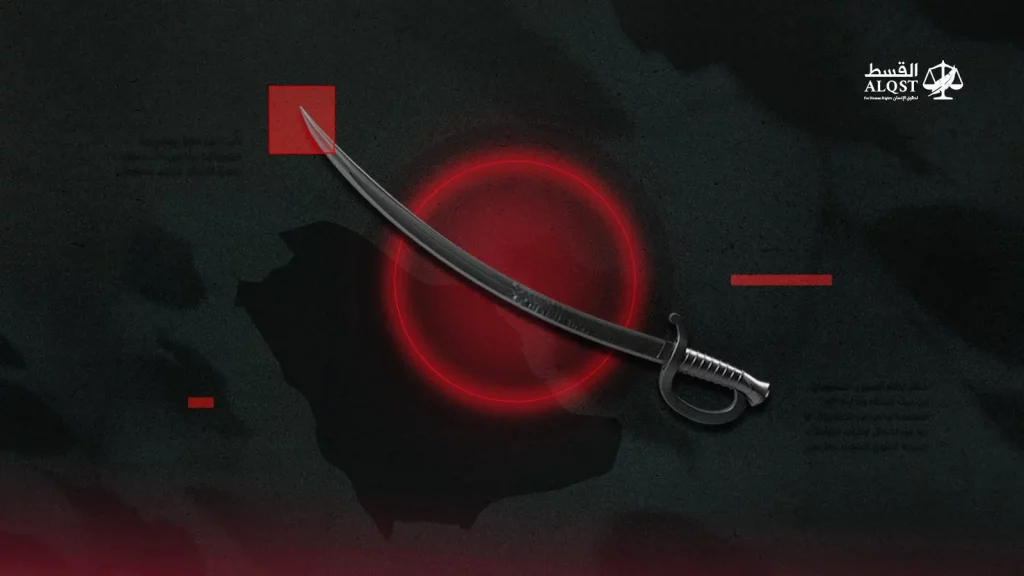
To condemn the increasing use of capital punishment in Saudi Arabia, ECPM has joined forces with more than 30 NGOs in a joint statement. Since the beginning of 2025, the Saudi authorities have executed at least 292 people, including four women. This year is expected to exceed last year’s grim record of 345 executions.
Ces dernières années, [les exécutions] ont concerné de nombreux ressortissants étrangers condamnés pour des infractions liées à la drogue, des citoyens saoudiens condamnés pour avoir exprimé pacifiquement leur désaccord avec le pouvoir et un jeune homme exécuté pour une infraction qu’il aurait commise alors qu’il était encore enfant.
IRAN : STATEMENT OF IRAN HUMAN RIGHTS
A few days before the World Day, Iran executed at least 15 more people. Since the beginning of 2025, the Iranian authorities have carried out at least 1,105 executions, including 30 women, reaching a new record high over the last three decades.
Faced with this deeply worrying situation, ECPM echoed its partner Iran Human Rights in denouncing the Iranian regime’s violation of all the fundamental principles of international law..
MOROCCO : PRESS CONFERENCE AND HIGH-LEVEL ADVOCACY
Every year, ECPM and its Moroccan partners join their voices at a press conference for the World Day, which they have been co-organising for many years at the headquarters of the Moroccan National Human Rights Council (CNDH) in Rabat. This meeting has provided a platform for a diverse range of national and international abolitionist actors, members of civil society and diplomats to discuss the positive momentum at work in Morocco, which must be maintained and nurtured in order to achieve abolition.
This annual meeting, which is essential for abolitionist advocacy in Morocco, illustrates the strength of the abolitionist movement and is the result of cooperation between ECPM, the Moroccan Coalition for the Abolition of the Death Penalty, the Moroccan Prison Observatory, the CNDH and national networks for the abolition of the death penalty (parliamentarians, lawyers, teachers, journalists, entrepreneurs), in partnership with the Council of Europe.
What progress has been made here in Morocco ! [We welcome] the irreversible trend towards abolition following Morocco’s vote in December 2024 at the United Nations in favour of the Resolution for a universal moratorium and following the amendment of the Code of Criminal Procedure requiring unanimity among judges for any death sentence.
Raphaël Chenuil-Hazan, Executive Director of ECPM, during his speech at the CNDH headquarters, press conference for the 23rd World Day
It was also an opportunity for Raphaël CHENUIL-HAZAN, alongside a large delegation of actors and actresses advocating for abolition in Morocco, to be received by the Minister of Justice, Mr Abdellatif Ouahbi, accompanied by Mr Hicham Malati, Director of Criminal Affairs at the Moroccan Ministry of Justice.
This meeting provided an opportunity to highlight Morocco’s recent progress :
– The vote in favour of the United Nations General Assembly resolution calling for a moratorium on the use of the death penalty in December 2024
– The requirement for unanimous agreement among judges for death penalty decisions, following the adoption by the House of Representatives of Bill No. 03.23 amending the Code of Criminal Procedure (Law No. 22.01) on 22 July 2025
– The commutation of the sentences of 23 people sentenced to death by royal pardon on 29 July 2025
– The vote in favour of the Human Rights Council Resolution on the question of the death penalty on 7 October 2025
This meeting also provided an opportunity to urge the Minister to move more quickly towards the abolition of the death penalty in Morocco, particularly in view of the ongoing reform of the Penal Code.
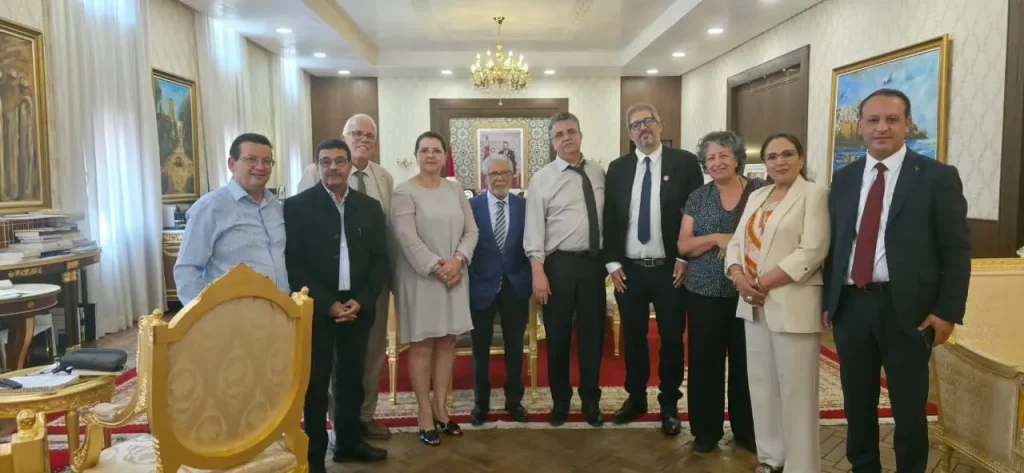
TUNISIA : LEGAL TRAINING
The Tunisian Coalition Against the Death Penalty and ECPM organised a training weekend for lawyers from the regions of Souss, Monastir, Mahdia and Kairouan from Saturday 11 to Sunday 12 October.
The aim of the seminar was to highlight the essential role of lawyers in ensuring that all prisoners, without discrimination or exclusion, benefit from the guarantees of a fair trial and all the protections provided for by national legislation from the moment of detention in death penalty cases.
Over two days, high-level presentations enabled participating lawyers to address various topics related to their specific role and the death penalty. The particularly insightful presentation by Hafidha Chekir, professor emeritus of law, focused on ‘the death penalty in international law,’ outlining international instruments relating to respect for the right to life and the prohibition of inhuman treatment. The presentation by Ferid Ben Jha, professor emeritus of law and magistrate, focused on ‘The criminal policy of the death penalty in Tunisian legislation.’ Chokri Latif, President of the CTCPM, highlighted the specificities of the current context in Tunisia, particularly the trials involving numerous opponents facing the death penalty and the recent case of Saber Chouchène, who was sentenced to death for posts on Facebook but then acquitted thanks to the mobilisation and pressure of civil society and public opinion. Mondher Cherni, a lawyer, provided insights into the provisions and criminal procedures in death penalty cases, using case studies which emphasised the shortcomings of the judicial system, including the systematic lack of legal assistance and psychiatric expertise during detention.
Participants also took part in practical group exercises and watched video clips produced in 2023 by the CTCPM and ECPM, featuring testimonials from several prominent Tunisian abolitionists. [FRENCH/ARABIC ONLY]
MAURITANIA : MULTI-STAKEHOLDERS CONFERENCE
A conference bringing together various abolitionist actors to discuss alternative sentences was held in Nouakchott, organised by the Mauritanian Association for Human Rights (AMDH) and ECPM.
With nearly 30 participants, the meeting consisted of a series of discussions, testimonials, presentations by criminal law experts, and a film screening of La Larme du Bourreau (The Executioner’s Tear), which traces the journey of a former executioner responsible for carrying out death sentences and highlights the psychological burden, remorse, and gradual dehumanisation experienced by those who are also victims of the capital punishment system.
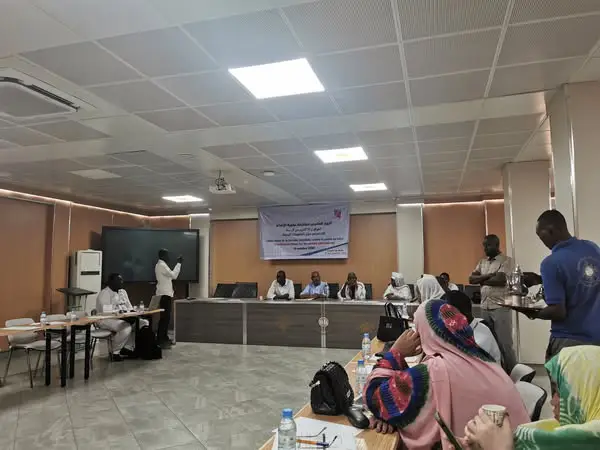
LEBANON : ACADEMIC WORKSHOP
The Academic University for Non-Violence and Human Rights (AUNOHR), the Lebanese Association for Civil Rights (LACR) and ECPM organised an interactive academic workshop on the theme of ‘Reflecting on the death penalty in the light of non-violence and human rights’.
The event brought together 28 students and members of civil society organisations in Gemmayzé. It is part of an initiative launched by AUNOHR : a master’s course dedicated to the fight against capital punishment, based on the philosophy of non-violence, human rights and recent scientific research.
International
7th EDITION OF THE COMPETITION ‘DRAW ME THE ABOLITION’ : REGISTRATION IS OPEN !
Every three years, the graphic poster competition ‘Draw Me the Abolition’ invites young people aged 12 to 25 from around the world to put their creativity to work in the fight against the death penalty by creating a graphic poster.
The project aims to encourage and promote civic engagement among young people by sparking their interest, particularly among secondary school students, in the issue of the universal abolition of the death penalty through creativity.
Registration is open until 31 December 2025 !
YOUNG AMBASSADORS AGAINST THE DEATH PENALTY : STATEMENT RELEASE
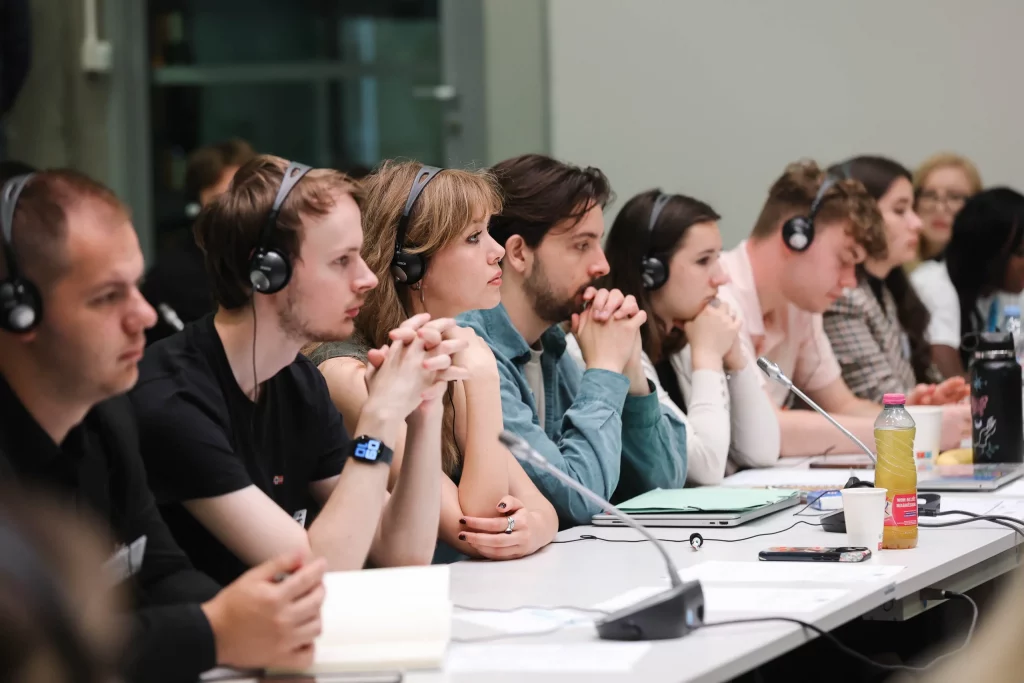
As a result of the work carried out by the Education programme during various editions of the workshop ‘Advocacy and awareness-raising for the abolition of the death penalty’, in collaboration with the Council of Europe and the German Coalition Against the Death Penalty, the group of young ambassadors for the abolition of the death penalty once again mobilised on the World Day.
On this occasion, they published a statement reaffirming their commitment to a more just world without capital punishment.
We, the Youth Ambassadors for the Abolition of the Death Penalty, stand united in calling for the universal abolition of the death penalty. In a time of pressing global challenges, we reaffirm that justice, human rights, and equality are non-negotiable foundations of our society. The death penalty protects no one – not society, not victims, not the marginalised or vulnerable – and has no place in a modern justice system.
All activities organised by ECPM and its international partners were made possible thanks to financial support from their joint project, ‘Paths to Abolition: Supporting progress towards the abolition of the death penalty in Africa, Asia and the Middle East’: Agence Française de Développement, the Fondation de France, Norway and the European Union.

